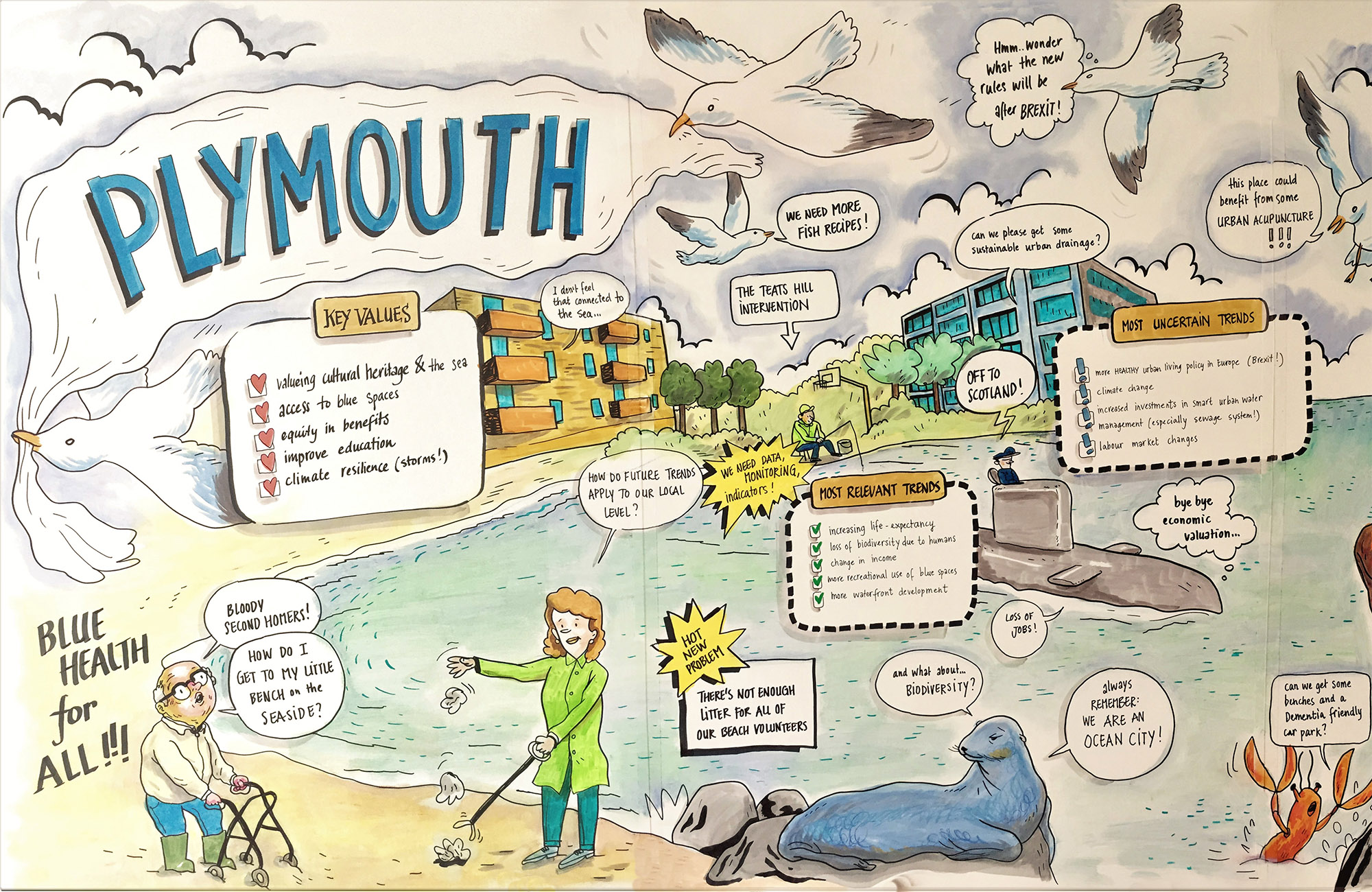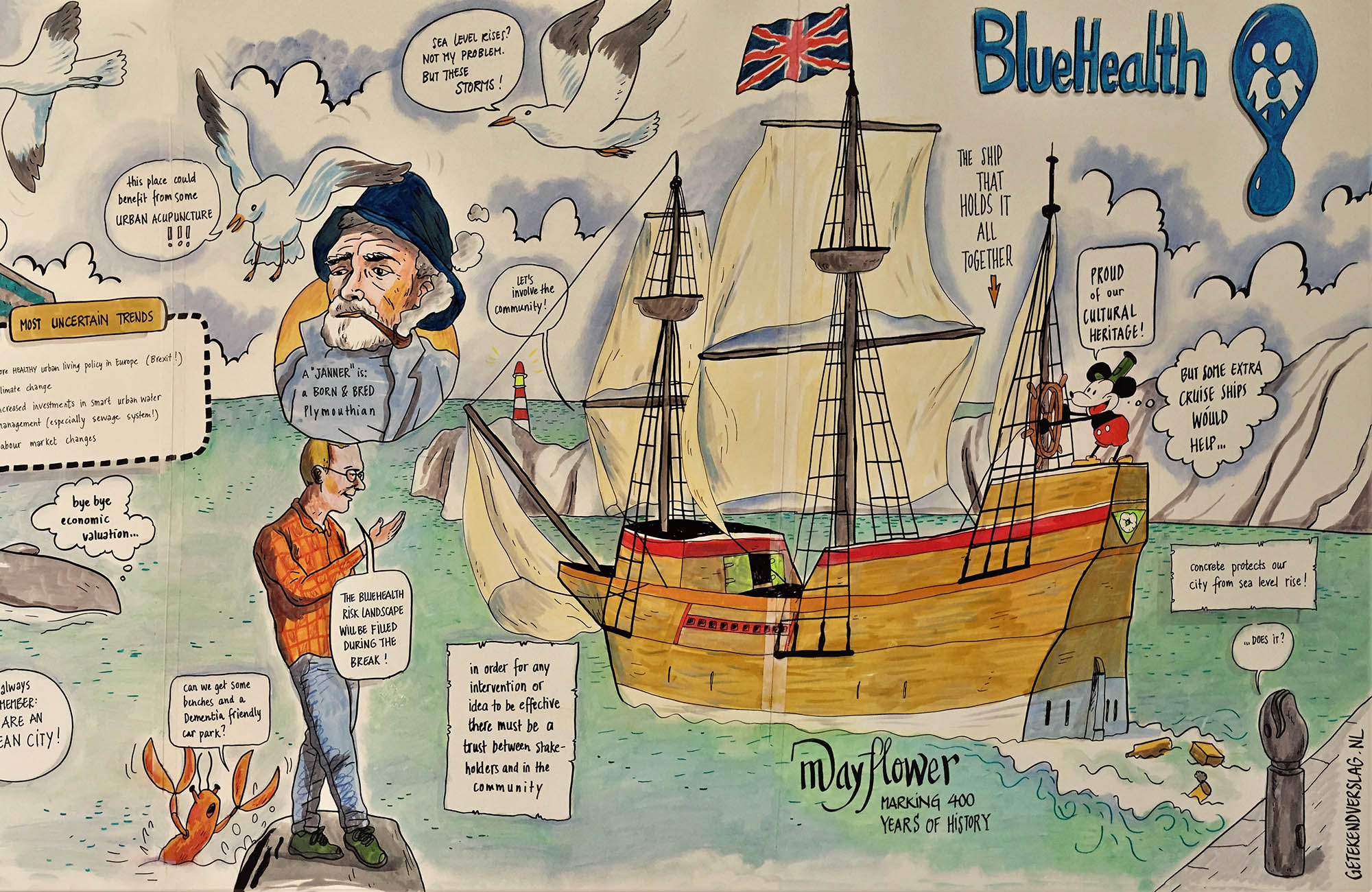Scenario planning in Plymouth
Scenario planning can often seem like a cryptic exercise, but it’s central to the outcomes of the BlueHealth project.
Our partners from the Dutch National Institute for Public Health and the Environment (RIVM) recently met with a broad range of partners in Plymouth, UK, to discuss the future priorities for the city and understand how a BlueHealth approach might fit in. Experts from the local council, water and housing sectors, and community engagement specialists all attended, hoping to identify values and ambitions for the city.
Participants were asked to imagine future changes in the economy, society, and environment, and to consider how they might impact Plymouth and the surrounding area. These ‘trends’ were then scored on how relevant or uncertain they were perceived to be.
The most relevant trends for Plymouth included:
- Increasing life-expectancy;
- Loss of biodiversity due to humans;
- Changes in income;
- More recreational use of blue spaces;
- Increasing waterfront development.
Important BlueHealth values identified were ‘access to blue spaces’ and ‘improving identity and pride: realising we’re an ocean city’.

Illustrated meeting notes (right click on the image and select ‘open in new tab’ for a larger version).
The second part of the workshop involved explaining how these trends may impact the city and focused on an ‘ageing population’ and ‘connection to the ocean’.
This process was useful because it highlighted various factors to consider when designing BlueHealth interventions. ‘Inclusion of the community’ and a ‘sense of belonging’ emerged as important, with public opinions, thoughts, and concerns viewed as vital to providing effective and suitable-for-all interventions.
Findings from this workshop—along with scenario-based discussions taking place across Europe—will help to form a picture of how future BlueHealth interventions can be supported across different regions and cultures.

More illustrated notes (right click on the image and select ‘open in new tab’ for a larger version).

